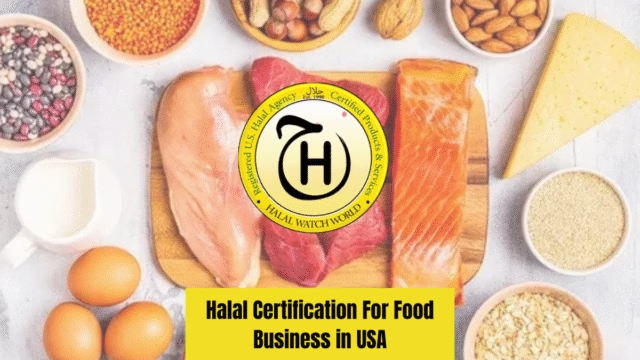Halal certification plays a pivotal role for businesses aiming to serve Muslim consumers both locally and globally. It acts as an assurance that food, beverages, and other products meet the strict dietary requirements defined by Islamic law. Companies seeking to reach new markets or maintain trust with existing consumers often rely on recognized halal certification services to validate their processes. Understanding the certification process, its benefits, and the impact on market access is vital for producers, exporters, restaurateurs, and retailers alike.
Introduction to Halal Certification
Halal certification is an official process that verifies products, production facilities, or services comply with Islamic dietary laws. This involves detailed inspections and documentation checks, ensuring that the ingredients, sourcing, processing, and handling are all in accordance with Shariah principles. The growth of the global Muslim population, now exceeding 1.9 billion, has significantly increased the demand for halal-certified products across food, pharmaceuticals, and cosmetics sectors.
Growing Demand in the USA and Beyond
Producers in the United States have observed a surge in demand for halal products, both domestically and for export. The American market is home to a diverse Muslim community seeking authenticity and assurance in their purchasing choices. Exporters also find that many international markets, particularly in the Middle East, Southeast Asia, and parts of Africa, require halal certification as a condition for entry.
Certification Process Overview
Securing halal certification follows a well-defined series of steps. The process can be summarized as:
- Pre-evaluation of products, ingredients, and suppliers
- Document checks and on-site audit of manufacturing facilities
- Training of staff in halal compliance procedures
- Review by a religious board or recognized Halal Certification Agency
- Awarding of the certificate upon compliance
Each Halal Certification Agency may have specific requirements, but the fundamental focus remains on thoroughness and integrity. The certification is typically valid for one year, encouraging routine audits and ensuring ongoing compliance.
Benefits for Exporters and Local Producers
Gaining halal food certification opens access not only to domestic Muslim consumers but also international markets with strict import regulations. Manufacturers can differentiate their products, enhance brand loyalty, and gain a competitive edge. Certified companies enjoy opportunities in markets such as Malaysia, Indonesia, Saudi Arabia, and other countries where the halal food certificate is necessary for entry. This also aids logistic partners and retailers in confidently sourcing compliant products.
Key Requirements for Halal Food Production
Businesses aiming for halal food certification in the USA or globally must adhere to several requirements:
- Use of halal-compliant raw materials (no pork, alcohol, or non-halal animal derivatives)
- Strict physical separation of halal and non-halal products and equipment
- Meticulous cleaning and sanitization routines to avoid cross-contamination
- Transparent documentation of supply chains and production processes
- Employee education on halal handling procedures
Meeting these halal food certification requirements demonstrates a company’s commitment to product integrity and consumer trust.
Halal Certification Cost Considerations
Halal certification cost varies depending on several factors, such as company size, number of products, facility locations, and audit frequency. Fees may include application costs, audit expenses, and license renewal. Smaller producers can often expect lower fees, while large-scale operations face higher costs due to complex supply chains and multiple facilities. However, many businesses view this investment as essential for accessing lucrative markets and building consumer confidence.
Role of Certification Agencies
A halal certification company is a recognized body responsible for auditing, inspecting, and certifying businesses. Such agencies ensure impartiality and adherence to established global standards. The selection of the right agency is critical, as importers and international authorities often have lists of accredited organizations whose certificates are accepted.
Ensuring Ongoing Halal Compliance
After gaining certification, companies must maintain rigorous standards. Regular internal reviews, staff training, and ongoing communication with suppliers are crucial. A dedicated compliance manager can be a valuable asset in overseeing the process and preparing for periodic surprise audits by the Halal Certification Agency.
Significance for Restaurants and Retailers
Restaurants, catering companies, and grocery suppliers increasingly seek halal certification on food items to meet the growing needs of Muslim customers. Having clearly labeled halal options influences consumer trust, enhances brand reputation, and increases overall market share. Retailers with halal-certified products in their offerings also benefit from the loyalty of an informed customer base.
Market Trends and Growth Opportunities
The global halal market has seen exponential growth, with halal food certification USA trends showing significant expansion. Diverse regions require a halal food certificate for import and distribution. Companies currently serving these markets can tap into new opportunities by expanding certified product lines and maintaining transparent communication with certification authorities.
About halalwatch.us
halalwatch.us is an organization focused on consumer advocacy and research in the halal industry. It strives to provide accurate information on halal food standards and works to protect consumer interests by offering guidance on identifying compliant products and sharing industry updates.
Conclusion
Businesses investing in halal certification services gain essential market access, increased customer trust, and a clear competitive advantage. The process, though demanding, supports local and export growth, fosters transparency, and aligns with both domestic and international trade regulations. Meeting halal food certification requirements demonstrates respect for the cultural and religious values of Muslim consumers, driving business success and supporting long-term industry integrity.
Read more exciting news on smartskill97.com







